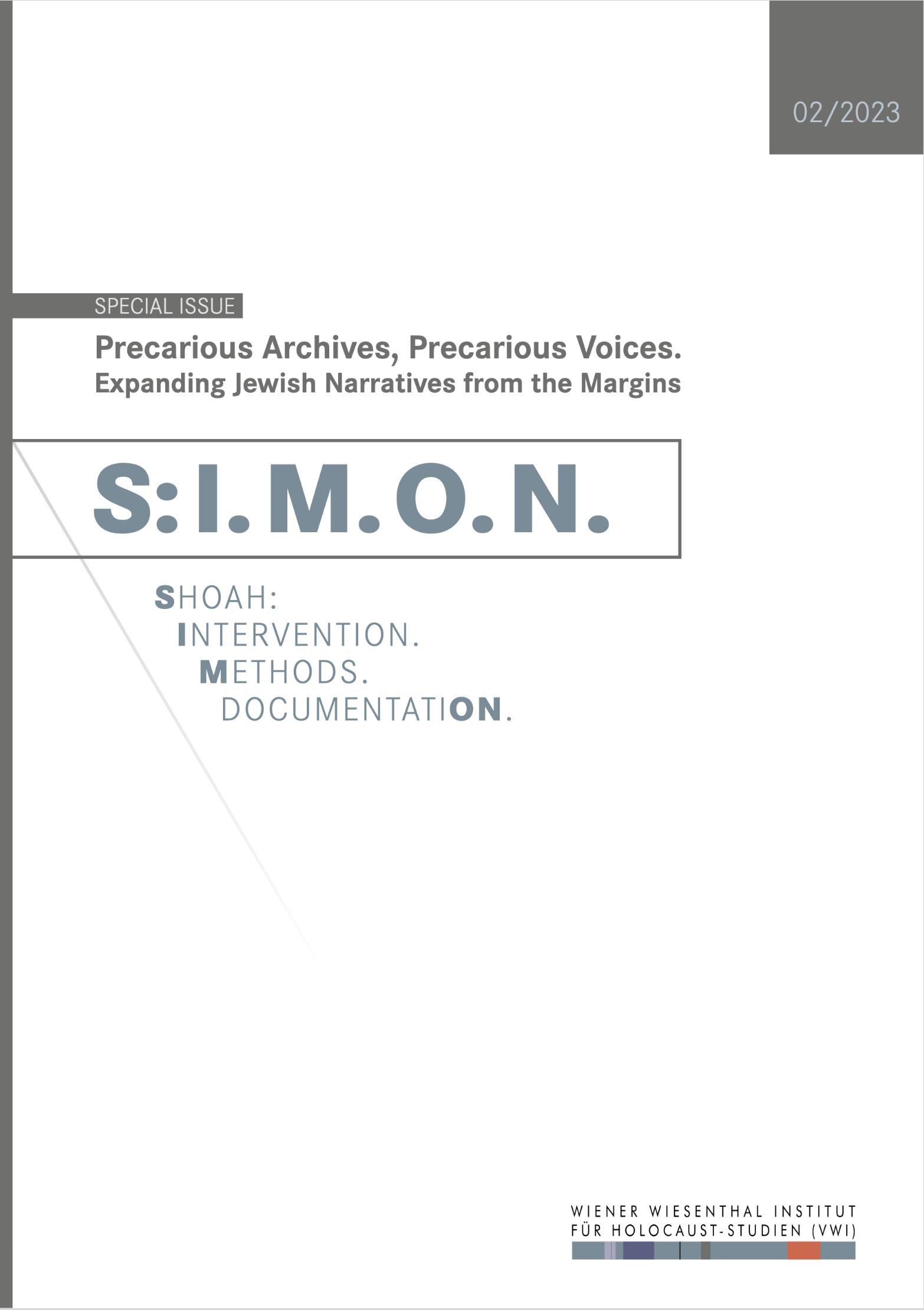The Missing Archives: Writing about the Life, Death, and Memory of Jewish Relatives in Daniel Mendelsohn’s The Lost
The Missing Archives: Writing about the Life, Death, and Memory of Jewish Relatives in Daniel Mendelsohn’s The Lost
Author(s): François-Xavier GarneauSubject(s): History, Jewish studies, History of Judaism, WW II and following years (1940 - 1949), Sociology of Literature
Published by: Wiener Wiesenthal Institut für Holocaust-Studien
Keywords: Shoah; Daniel Mendelsohn; Archives; The Lost; Literary Devices; Precarious Archives; Third-generation Decendant;
Summary/Abstract: If the children of Shoah victims have inherited the experiences of their parents, their own children, the third-generation descendants, are faced with an additional distance toward this inheritance. Daniel Mendelsohn’s 2006 book The Lost: A Search for Six of Six Million is somehow paradigmatic of the members of this generation. Writing about the life and death of his Jewish great-uncle, who was with his wife and four daughters killed by the Nazis during World War II in Bolechow, a Polish city now located in Ukraine, Mendelsohn’s quest is challenged by the fact that there are almost no archival traces about the circumstances of their death. In this article, I will examine a specific part of the book in which Mendelsohn writes about the death of one of his extended relatives, Ruchele, who is killed in the first Aktion perpetrated by the Nazis in Bolechow, and about which no archives and no testimonies were left behind. The author is faced with the impossibility of rendering a coherent and complete narrative of her last moments and has no way of using the archives to fill this gap. He proposes something else: rather than writing about the specifics of her last moments, he writes about the epistemological and ethical limits he encounters, caused by the absence of archival transmission that could have linked him to this event. As the narrator, he offers a new methodology that confronts the precarity of the archives by questioning – whether it is by using literary devices such as the preterition or by using the interrogative form – what really happened to his relative.
Journal: S:I.M.O.N. Shoah: Intervention. Methods. Documentation.
- Issue Year: 10/2023
- Issue No: 2
- Page Range: 15-30
- Page Count: 16
- Language: English

